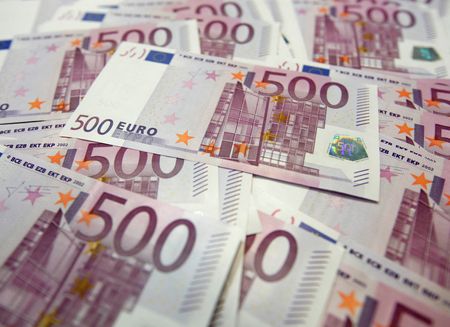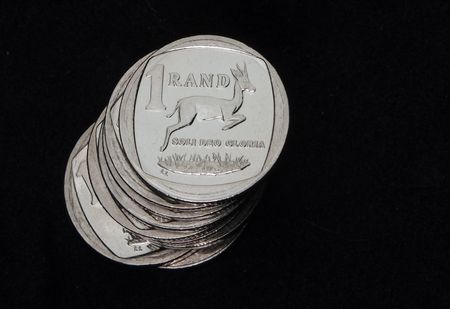By Chuck Mikolajczak
NEW YORK (Reuters) -The euro pulled back from earlier highs on Monday after briefly rallying following the election victory of Germany’s conservatives as the focus turned to how quickly a coalition government can be achieved.
Friedrich Merz was set to become Germany’s next chancellor after his party emerged victorious in Sunday’s election as expected, but coalition talks may be difficult and he could face an obstructive parliament after both far-right and far-left parties surged.
Investors were also looking for clues to see if Germany will loosen its constitutionally enshrined ‘debt brake’ rule that limits the budget deficit to just 0.35% of national output.
“The policy implications are twofold, one is the debt break in Germany,” said Marc Chandler, chief market strategist at Bannockburn Global Forex in New York.
“That’s important because it sets up the basis for the next thing, too, and that is Europe realizes that they have to step up their defense spending and it seems like the best way to do that is through a collective bond offering.”
The issue has become more pressing as the possibility of U.S. tariffs that could further dent the German economy and the Trump administration’s demands that NATO’s European members, including Germany, spend much more on defense.
Merz on Sunday vowed to help give Europe “real independence” from the U.S.
The dollar index, which measures the greenback against a basket of currencies, rose 0.07% to 106.61, after dipping to 106.12, its lowest since December 10 and is down more than 3% from a more than two-year high hit in January.
“The down move is over, just about over, and that’s partly what the euro is telling us today, not just the euro but the other currencies, many of them made new highs for the move and now are selling off and going through Friday’s lows. This is technically a negative price action,” said Chandler.
The euro was up 0.1% at $1.0468 after earlier reaching a one-month high of $1.0528.
Data on Monday showed business morale in Germany unexpectedly stagnated in February, as the Ifo institute said its business climate index remained flat at 85.2 in February after revising the January reading up slightly to the same figure.
The move in the dollar comes as concerns have started to emerge about U.S. economic growth, tariffs worries grow as deadlines by U.S. President Donald Trump on Canada and Mexico are set for next week, as well worries over damage to the labor market stemming from actions taken by billionaire Elon Musk’s Department of Government Efficiency.
Investors will get a reading on U.S. inflation on Friday, while a slew of Federal Reserve officials are expected to speak this week, beginning on Tuesday.
Against the Japanese yen, the dollar was flat at149.29.
Sterling weakened 0.07% to $1.2621, losing ground after it had risen to a two-month high of $1.269.
(Reporting by Chuck MikolajczakEditing by Nick Zieminski)










